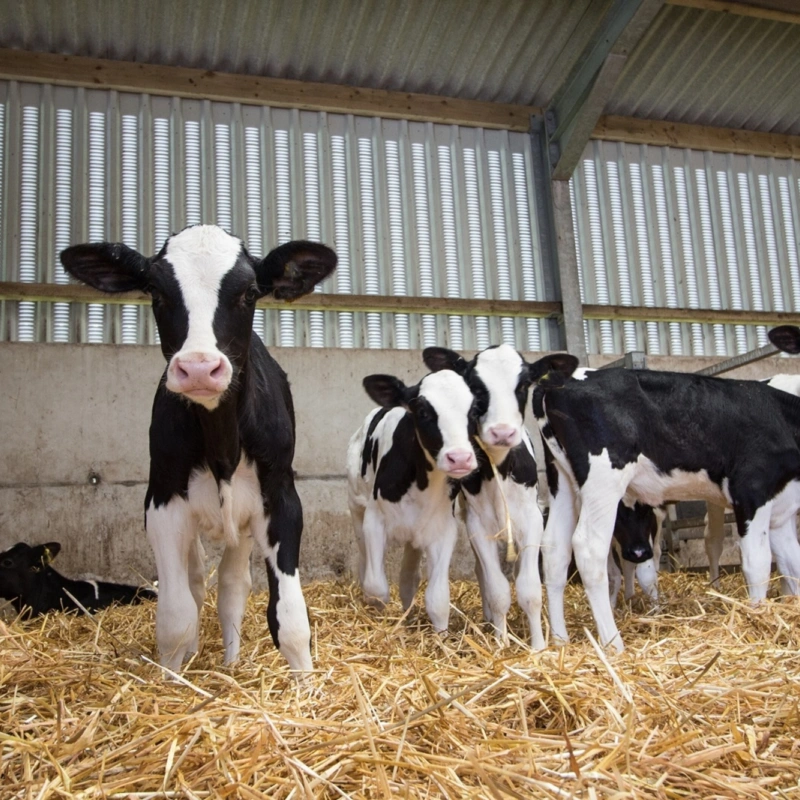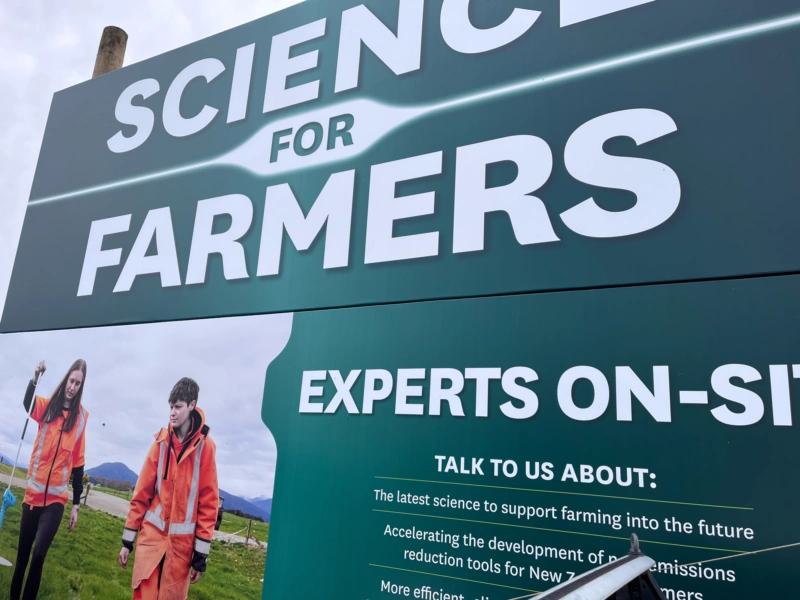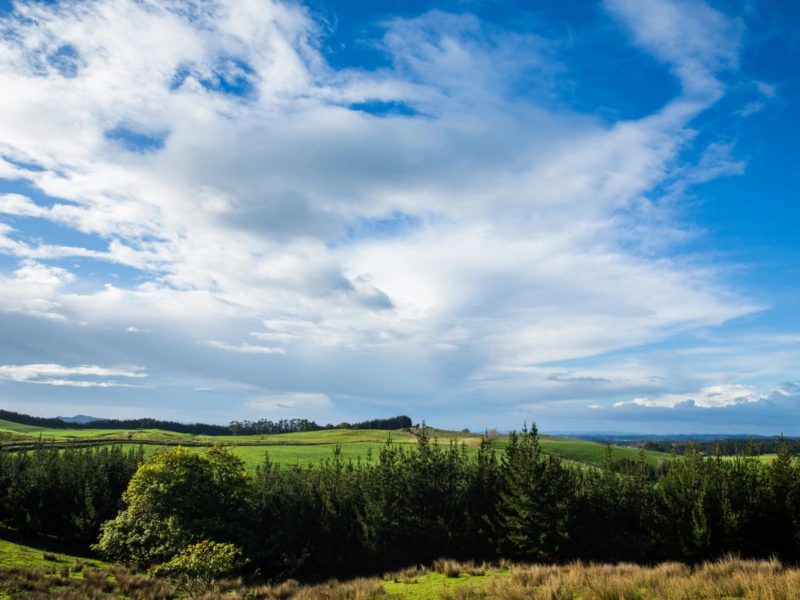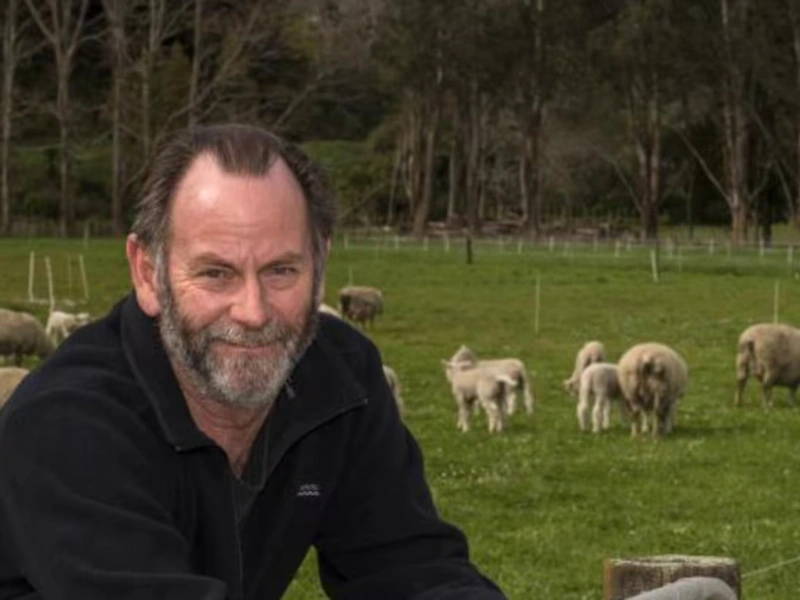Since 2016, Pāmu has been investing in organic dairy farming. Today, we have 11 farms and three runoffs based in Wairākei near Taupō and Moutoa in the lower North Island.
We have 6,430 dairy cows on 4,190 ha across these farms, making Pāmu the largest organic farmer in Aotearoa New Zealand.
Why we moved to organics
Environmental considerations are an integral part of the Pāmu strategy. We identified that a shift to organic milk supply could lower the environmental footprint, and the premiums for organic milk would mean no loss in commercial viability.
Pāmu started the first organic conversions on two farms: Earnslaw in the Central Plateau Pastoral Complex at Wairākei and Tasman in the Manawatū Moutoa Complex. The aim was to execute and learn from a farming system with a lower environmental footprint that had equal profitability. A secondary driver in the Central Plateau was evolving environmental regulations, notably the Proposed Waikato Regional Plan Change 1 (PC1). The objective was a sustainable business strategy where we would be de-risking the farm businesses through:
- fewer cows – shorter milking times
- BCS focus – fewer animal health issues to treat
- BCS focus – improved reproductive performance
- lower SCC – problem animals removed
- longer grazing round length – increased buffer for adverse events
- green cover – creating extra feed options and reducing runoff and loss of topsoil
- reduced emissions and leaching.
This is underpinned by a strong focus on people.
“It is important you have the right people. You need to be invested and passionate about the system change. As a team, we are proud of the sustainable model we have achieved on these farms and feel the philosophies of organics align with our personal values. This has been a key to our success,” says Cleo Te Kiri, Dairy Business Manager Organics.
What does organic farming mean?
In organics, you don’t have to throw everything in the bin. Some products are allowed with restrictions:
- Pain relief – some anti-inflammatories (such as Norflunix) are permitted with animal record, withholding and paperwork requirements.
- Drench – a small selection of pour-on products are approved. These cannot be used as a preventative and must have written instructions from a vet. There are withholding rules and restrictions on how many times an animal can be treated per year. They typically result in animals never being able to be sold as organic meat animals so we try to avoid needing it.
- Minerals – most approved with proof of need and vet recommendation.
- Feed – only feed certified to the same markets as the farm. We use silage from the runoffs and kibbled maize for young stock at Earnslaw. Our other organic farms have kibbled maize from milking cows, and we have a kibbling facility on one Pastoral farm (Broadlands).
- Cleaning products – key products for the shed are approved with protocols.
These tables compare Pāmu organic farms’ performance to our conventional farms.
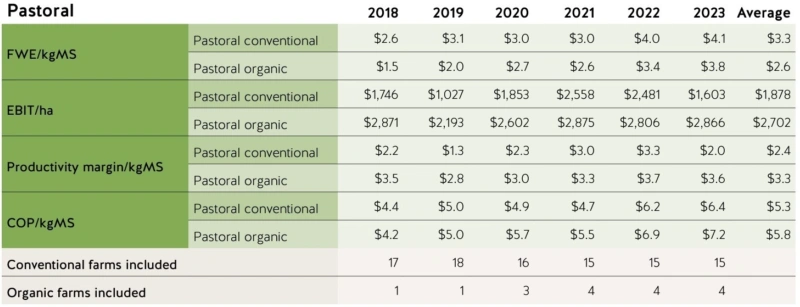
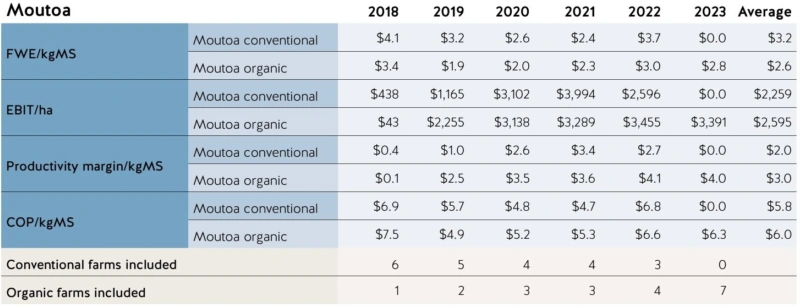
Certification standards
Our organic farms meet a wide range of certification standards, which allows access to markets across the world, therefore allowing Fonterra to pursue high value partnerships. Certification standards we hold include:
- IFOAM/AQ Standard – EU, GB, Switzerland, Canada/COR
- USDA – Taiwan, China, Korea.
Looking ahead
Overall, the stocking rate on our organic farms has gone down, and the cost of production has gone up. We grow less grass and can feed fewer animals, but we produce a more niche product that we will be paid more for.
Our goals:
- Harvest more grass to reduce purchased feed requirements, reduce costs and drive production. We are focusing on which species suit our organic farms from a diversity, persistence and animal health perspective.
- Mastitis management – establish a herd that suits organics, managing out cows that don’t suit the system and perfecting systems for managing mastitis.
- Cow BCS and young stock management will always be a key focus.
- Milk solids performance – continued focus to lift MS/cow. We are always building our toolkit and continue to attend open days and education sessions on organic and regenerative farming principles to see what suits our system.
It’s really important we share what we learn with other farmers. More than 150 people turned up to Earnslaw’s Organics Open Day earlier this year to hear from the farm team and Fonterra about the conversion journey.
